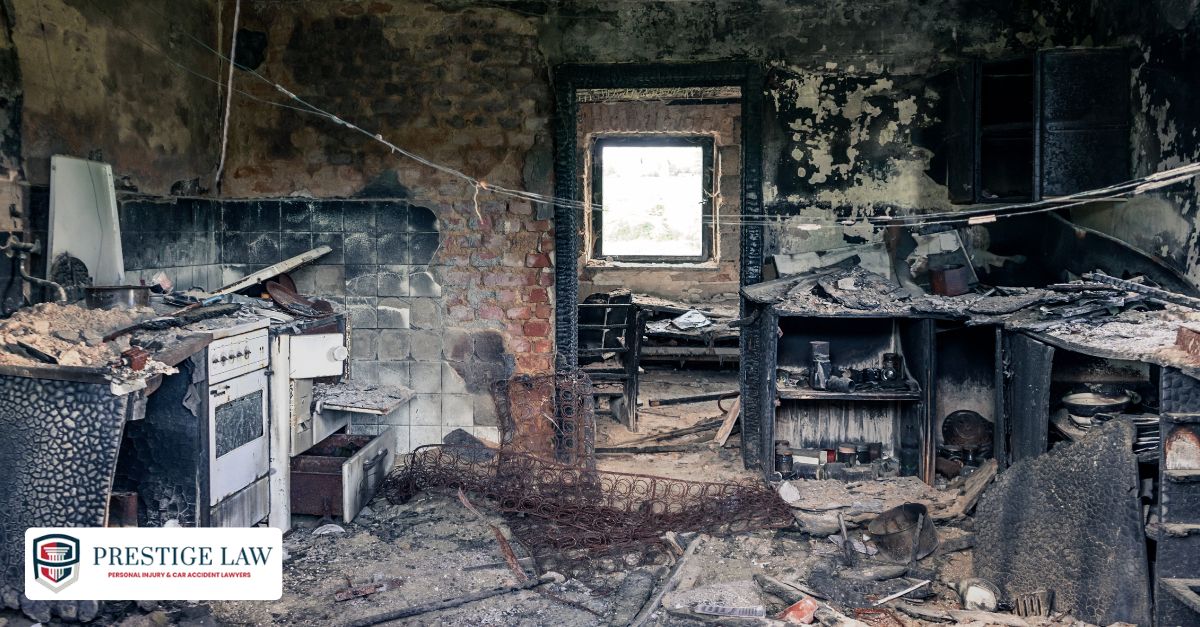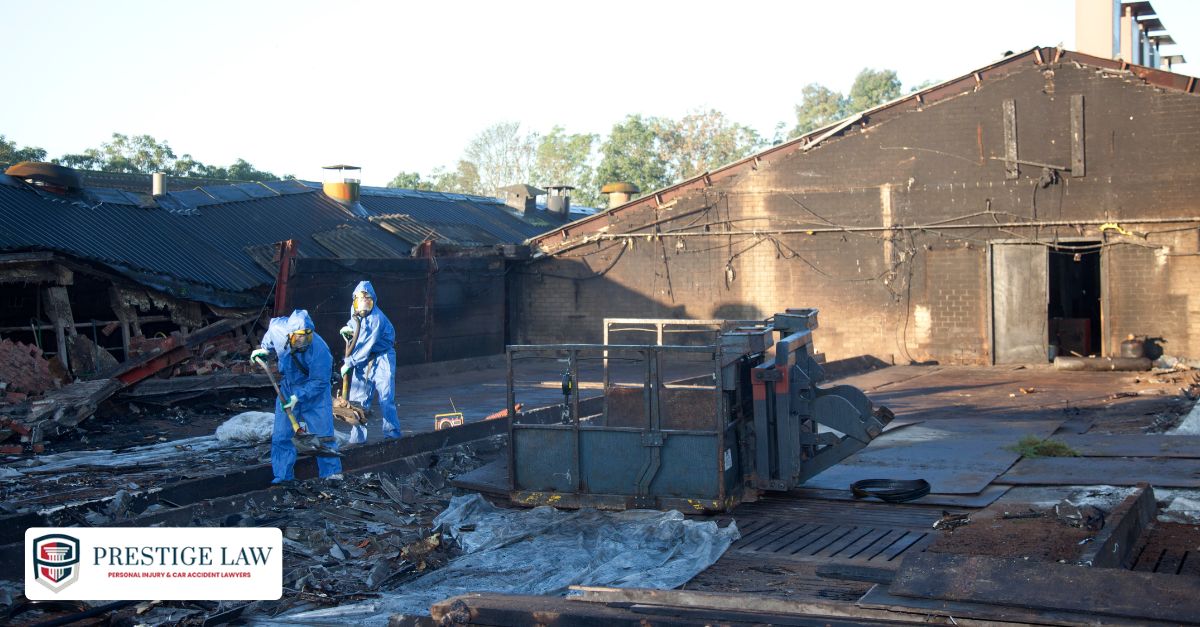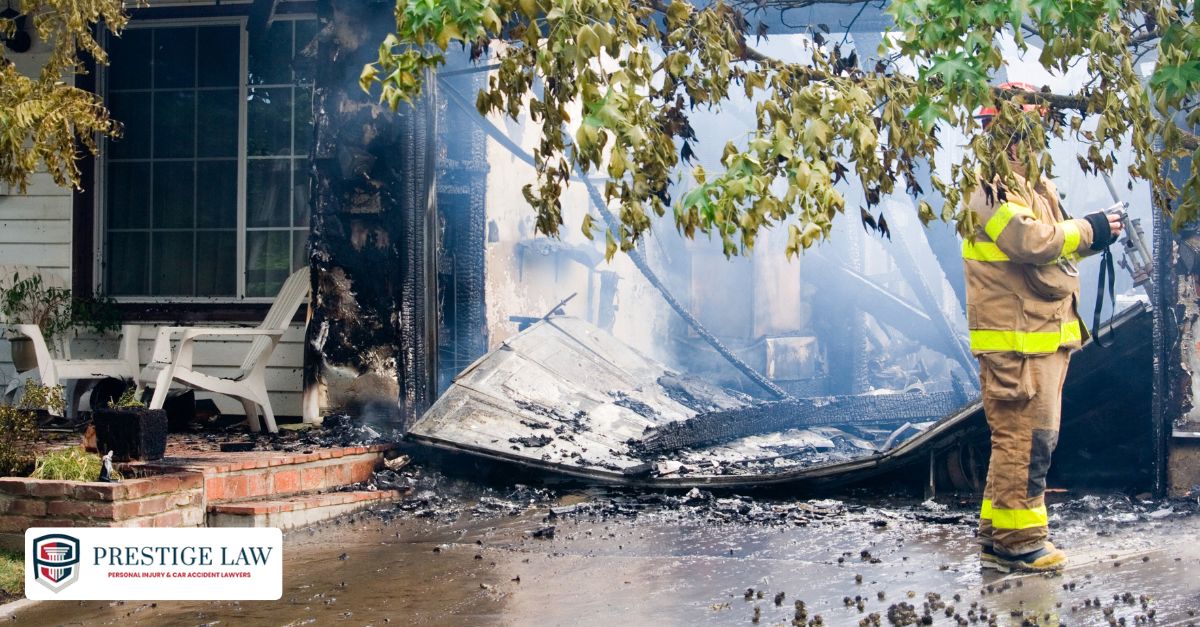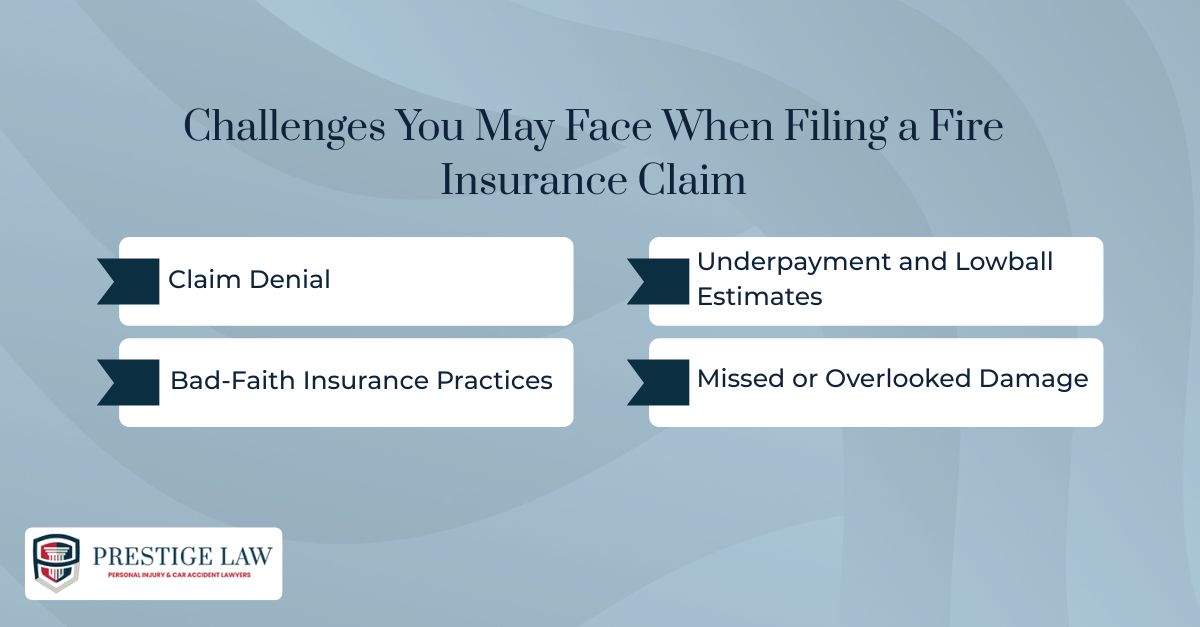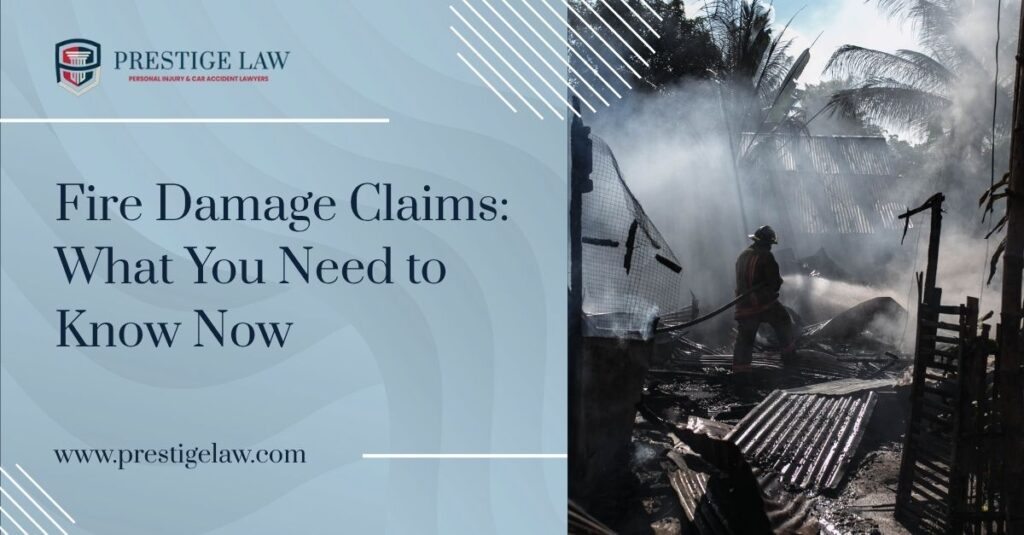
How to Handle Fire Damage Insurance Claims in California
Published on / Category: Insurance & Claims
A house fire doesn’t just damage property—it destroys lives. Between emotional stress, housing displacement, and navigating insurance red tape, the road to recovery can feel impossible to manage alone.
If your California home, rental, or business was damaged by fire, knowing how fire insurance claims work—and what to do when things go wrong—can protect your financial future.
From securing a fair payout to dealing with underpayment or bad-faith denials, this guide walks you through the legal and practical steps that help you rebuild.
At a Glance:
Filing a fire damage claim in California isn’t always straightforward. While most homeowners and renters insurance policies cover fire-related losses, delays, underpayments, and denials are common. This guide explains what typical policies include—like home repairs, personal items, and temporary housing—and how to file a strong claim. It also outlines common insurer tactics and when to involve a fire damage lawyer to help recover what you’re owed.
What is a fire damage claim?
A fire damage claim is a formal request you make to your insurance company to cover losses caused by fire. These losses can include structural damage to your home, destruction of personal property, smoke contamination, and even expenses related to temporary relocation.
Most homeowners and renters insurance policies in California include fire coverage—but how much you receive depends on your specific policy terms and how well the claim is documented.
Insurers often scrutinize fire-related claims carefully, especially during wildfire season, which makes clear documentation and timely action essential.
Whether you’ve experienced a small kitchen fire or a total loss from a wildfire, filing a fire damage claim is the first major step in getting back on your feet financially.
What does a fire damage claim typically include?
After a fire, your insurance policy becomes your main financial resource for recovery. But policyholders are often surprised to learn that fire damage coverage isn’t always as comprehensive as expected.
Understanding what’s typically included can help you prepare a stronger, more complete claim.
Here are the core components usually covered by standard homeowners or renters policies in California:
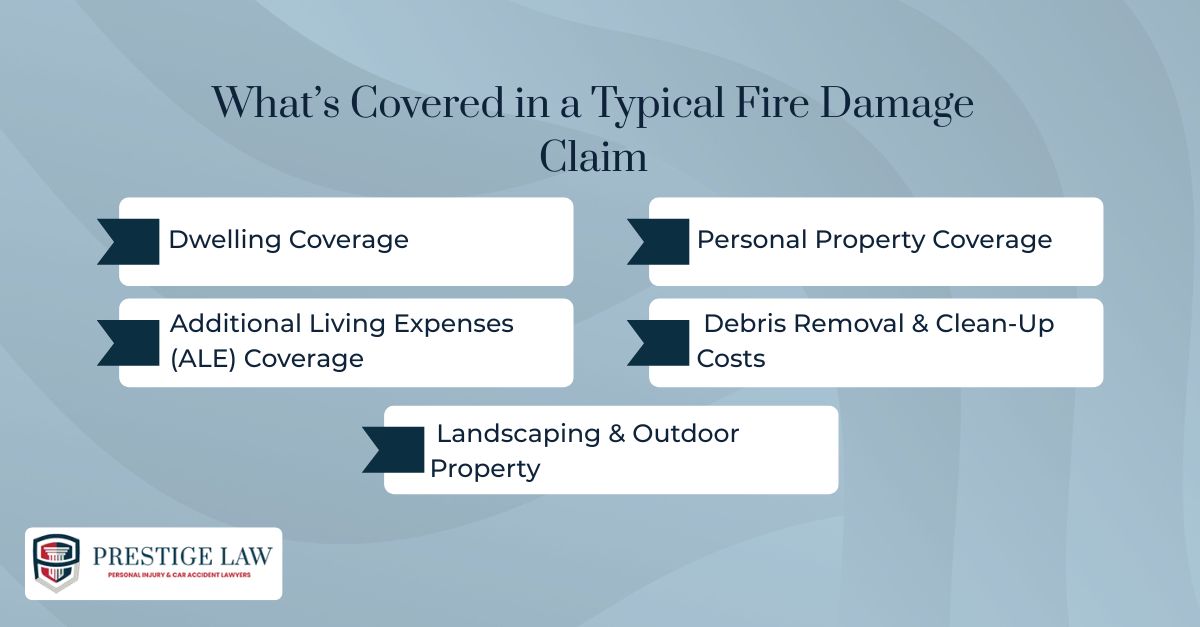
Dwelling Coverage
This pays to repair or rebuild the physical structure of your home—walls, roof, floors, electrical, plumbing, and permanently attached fixtures. It may also cover attached garages or porches. Detached structures, like fences or sheds, are usually insured at a percentage of your main dwelling limit.
Personal Property Coverage
This reimburses you for damaged or destroyed personal items such as furniture, clothing, appliances, electronics, and valuables. High-value items (like jewellery or art) may have sub-limits unless you’ve scheduled them separately.
Additional Living Expenses (ALE)
Also known as loss of use coverage, ALE helps pay for temporary housing, meals, storage, transportation, and other costs if your home is uninhabitable due to fire.
Debris Removal & Clean-Up
Fire often leaves behind soot, ash, and hazardous materials. Most policies include some cleanup coverage to safely remove debris and make the site ready for repairs.
Landscaping & Outdoor Property
Some policies include limited protection for outdoor structures, landscaping, patios, and outdoor furniture—especially if damaged during fire suppression efforts.
Note: Coverage amounts, exclusions, and limits vary widely. Always review your specific policy or speak with a legal or insurance expert before filing
How do I file a fire damage claim?
Filing a fire damage claim in California requires speed, clarity, and careful documentation. Here’s how to protect your rights and improve your chances of a full payout:
1. Notify Your Insurance Company Immediately
Contact your insurer as soon as possible after the fire. Many policies require prompt notice. Delays can result in coverage denials, especially during wildfire season when insurers may be overwhelmed with claims.
2. Document Everything
Take detailed photographs and video of all damage to your home, belongings, and any temporary living arrangements. Save receipts for emergency expenses like hotels, meals, or clothing replacements. Create a room-by-room inventory of damaged items, including descriptions and values.
3. Gather Supporting Documents
Prepare the essentials:
- Your policy number
- Personal ID
- Proof of homeownership or tenancy
- Any available records of property condition before the fire
If key records were destroyed, contact your county recorder’s office, leasing agent, or utility provider to request replacements.
4. Submit Your Claim and Work With the Adjuster
File the claim using your insurer’s preferred process—online, by phone, or in person. After submission, an adjuster will be assigned to inspect your home and assess the damage.
Attend the inspection yourself, or send someone you trust, and provide all collected evidence. Take notes on the adjuster’s questions and observations. Ask for a written estimate when available.
Tip: California’s wildfire rules sometimes change after emergencies. Check Insurance.ca.gov for the latest guidance.
Common Problems with Fire Insurance Claims
Even when you follow every step correctly, fire damage claims can still run into obstacles. Insurers may undervalue, delay, or deny claims—especially in high-volume situations like California wildfires.
Understanding the most common problems can help you prepare and push back when necessary.
Claim Denial
Claims may be denied for:
- Late notification: Missing deadlines for reporting the fire.
- Incomplete documentation: Lacking photos, receipts, or inventory lists.
- Policy exclusions: Fires caused by arson, faulty maintenance, or specific hazards may be excluded.
If your claim is denied, review the denial letter carefully. Sometimes, submitting extra evidence or clarifying your coverage can reverse the decision. If not, it may be time to involve a lawyer or appeal the decision.
Underpayment and Lowball Estimates
Even approved claims may fall short. Adjusters might undervalue damage, omit certain repairs, or use outdated replacement costs.
If you believe your settlement offer is too low:
- Get written estimates from licensed contractors.
- Compare itemized damage lists.
- Consider hiring a public adjuster, who works independently from the insurer to assess losses.
Challenging low estimates early can improve your recovery later.
Bad-Faith Insurance Practices
Some insurers may act in bad faith by:
- Delaying communication
- Misrepresenting policy language
- Refusing to explain denial reasons
- Offering deliberately low payouts
California law prohibits these tactics. Keep a paper trail—emails, call logs, letters—and report issues to the California Department of Insurance. If delays or denials persist, legal action may be warranted.
Missed or Overlooked Damage
Smoke, water, and structural damage can hide behind walls, in ductwork, or under flooring. If missed during the adjuster’s visit, those losses won’t be included in the initial payout.
To avoid this:
- Be present during inspections
- Point out all damage, even if it seems minor
- Request follow-ups if additional damage is found later
When to Contact a Fire Damage Lawyer
If your fire damage claim is delayed, denied, or underpaid—or you feel overwhelmed by the process—it may be time to get legal support. Insurance companies often hope you won’t challenge a low offer or misinterpret the fine print. A lawyer can level the playing field.
Signs you should call a lawyer include:
- Your claim is outright denied without clear explanation
- You received a low settlement offer that doesn’t reflect your actual losses
- You’re facing unreasonable delays or unanswered communications
- You suspect the insurer is acting in bad faith
- You’re unsure how to document or dispute damage properly
- You suffered serious losses and want to maximize compensation
A lawyer can help by:
✔ Communicating with the insurance company on your behalf
✔ Collecting documentation and evidence to support your claim
✔ Working with contractors, adjusters, or appraisers to assess damage accurately
✔ Challenging denials or low estimates using California insurance law
✔ Filing a lawsuit for bad-faith practices if necessary
Many fire damage lawyers in California work on contingency, meaning you don’t pay unless they win. The right attorney can improve your chances of a fair outcome—especially when you’re already managing trauma, loss, and financial strain.
Conclusion
Recovering from fire damage is already overwhelming—you shouldn’t have to fight your insurance company too. Whether your losses stem from a home fire, wildfire, or workplace incident, you deserve fair treatment and full compensation.
At Prestige Law Firm, we help Californians navigate complex fire damage claims, especially when insurance companies delay, underpay, or deny valid claims. If your fire involved hazardous property conditions, employer negligence, or serious personal injury, you may be entitled to additional compensation through civil litigation—not just an insurance payout.
We handle cases involving:
✔ Catastrophic injuries claims resulting from fire-related accidents
✔ Premises liability involving unsafe buildings or equipment
✔ Denied or delayed insurance claims tied to fire damage
✔ Work-related fire injuries, especially in construction or industrial settings
Let our experienced personal injury lawyers take the legal burden off your shoulders while you focus on rebuilding. We serve clients across California—including Van Nuys, Palmdale, and Los Angeles—with no upfront fees and no recovery, no fee.
Call us today at (818) 788-0808 or (661) 341-3939, email paul@prestigelaw.com, or visit prestigelaw.com for your free consultation.
What should I do if my fire insurance claim is denied?
Carefully review the denial letter and make sure all your documentation is complete. If needed, submit additional evidence or corrections. If the issue continues, consider appealing the decision or contacting a fire damage lawyer.
Can I sue my insurance company for denying my claim?
Yes. If your insurer denies your claim in bad faith—such as without proper investigation or in violation of policy terms—you may have grounds to sue for damages under California law.
What is considered bad faith by an insurance company?
Examples include unnecessary delays, failure to investigate a claim properly, misrepresentation of coverage, or refusing to pay a valid claim without clear justification.
How long does it take to settle a fire damage claim?
It depends on the complexity of the case and the insurer’s responsiveness. Simple claims may resolve in a few weeks, while more serious or disputed claims can take months, especially if legal action is involved.
Get Started Today!
24 hours a day / 7 days a week / 365 days a year
Contact our Los Angles and Antelope team of attorneys for a free consultation.

